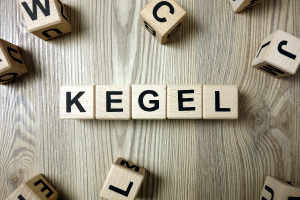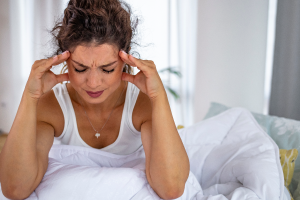

There are a lot of complexities involved in understanding the menstrual cycle. Balancing hormones is quite important during the whole cycle. Also, learning about our bodies and the specific requirements during different menstrual cycle phases can make self-care during this time much easier. The ovulation period constitutes the fertile window of the menstrual cycle. This period depends on the length of the menstrual cycle which varies with each woman. The possibility of getting pregnant increases during this fertile period. This is for women who are planning for a child. Otherwise, understanding when to have safe sex becomes crucial.
Your energy is at its peak owing to an increase in oestrogen and testosterone levels during the ovulation period. These hormonal levels can last for about 3 to 4 days. You should be planning activities that need these high energy levels on these days.
Your menstrual cycle comprises various phases. Menstrual hormones change during each of these phases. Self-care is imperative during each of these phases to manage the physical and mental discomfort associated with periods.
How Ovulation Period Helps You Conceive
Your menstrual cycle consists of 4 phases and the ovulation period is the most important for those who are intending to get pregnant.
- The menstruation phase is commonly referred to as the period. During this phase, the uterus lining sheds and flows out of your vagina. The length of this phase is between 2 and 7 days.
- The follicular phase begins on the first day of your period and will last for 13 to 14 days after which the ovulation will start.
- The ovulation phase is when an egg is released from your ovary and moves towards your uterus along the fallopian tube. The ovulation period is two weeks before your next period and occurs every month. It will last for 16 to 32 hours.
- The luteal phase is the stage after ovulation when the cells in the ovary release progesterone and small amounts of oestrogen. The thickness of the uterus lining is restored in preparation for pregnancy.
The chances of conceiving are greater if you have sex during the first 5 days before ovulation or on the day of ovulation. The most fertile days are the 3 days leading to ovulation and the day of ovulation. The chances of getting pregnant become bleak after 12 to 24 hours of ovulation. This is because the egg would have travelled through the fallopian tube.
Determining Your Ovulation Period
Knowing your ovulation period helps you in determining the ideal time to have sex to enhance the likelihood of conceiving. Normally, you ovulate any time within the 14 days before your menstruation.
Keeping a track of your menstrual cycle using any convenient method like maintaining a menstrual calendar or creating a chart is the best way to identify the fertile window.
You should know the length of your menstrual cycle to calculate your ovulation period. For this, you will have to record the first day of your period and the last day of your cycle which will be the day before your next period begins.
If you have regular periods, then calculating the length of your menstrual cycle will be simple. But if you have irregular periods, then you will have to arrive at an average menstrual length. You will have to note down the length of three consecutive menstrual cycles to arrive at the average menstrual length. Once the menstrual length is arrived at, you can calculate the fertile window in the following way:
- For a 28-day menstrual cycle, ovulation starts around the 14th day and the 12th, 13th, and 14th days are the fertile days.
- For a 35-day menstrual cycle, ovulation starts around the 21st day and the 19th, 20th, and 21st days are the fertile days.
- For shorter cycles like a 21-day cycle, ovulation starts around the 7th day and the 5th, 6th, and 7th days are the fertile days.
Importance of Self-Care During the Ovulation Period
Self-care is of prime importance during the ovulation period for both who are planning to conceive and those who don’t want to.
This is the period when the oestrogen and testosterone levels are very high and you are pumped with a lot of energy. You will feel more focused and proactive. Live to your best during this period. Some of the self-care tips for you are:
- Channelise the excess energy you derive during this period in the right direction. Prepare a to-do list and complete the tasks during this phase when you feel the most motivated.
- Schedule important meetings during this period when you feel more confident.
- Take advantage of this phase when you are feeling good about yourself and socialise.
- This is the time for some scented candles and flowers. In this phase, you sparkle in your femininity and your sexual appetite is at its peak. You can reconnect with your partner and build a stronger relationship.
- Honour yourself and engage in everything that is best for you. Pamper yourself with beauty treatments.
- Your body will need healthy fats, vitamin B6, folate, and choline during ovulation. Nurture yourself with foods that are rich in these nutrients.
- Complement the high energy derived during this phase with high-intensity and resistance workouts.
- Towards the end of ovulation, there will be a dip in your energy level and sex drive due to the release of progesterone. You will have mood swings during this period. You should engage in relaxation techniques to keep your moods in control.
- Your body will be undergoing a lot of changes during this stage and you should be gentle with yourself and should take some time to rest.
- You should also keep yourself hydrated by drinking lots of water.
- If you are trying to conceive, you should avoid overdoing exercises. Intense exercises result in hormonal changes that interfere with the production or release of eggs by the ovaries. If you engage in intense activities like swimming, running, aerobics, etc., it becomes difficult to conceive.
- Being a couch potato is also not recommended. You should consult your doctor regarding the exercises that help you to be in the best of your health when you are trying to conceive.
- Consumption of alcohol and smoking disturb the hormonal balance and affect the chances of conception. Avoid these during ovulation if you are planning a family.
- Keep away from stress. Stress interferes with ovulation. Practise relaxing techniques like meditation.
Conclusion
Your menstrual cycle consists of various phases and the ovulation period is the most important as this is the optimal time for conception. You should focus more on your overall health during this stage and avoid everything that interferes with your conception.
If you do not intend to conceive, this is the right time to indulge in your femininity. Pamper yourself with spa treatments, socialise, and reconnect with your partner. Living your life to the fullest when your moods and energy are at their peak is the best self-care practice during the ovulation period.
Frequently Asked Questions About Ovulation Period
Q. How to take care of oneself during ovulation?
This is the ideal stage for self-care as your moods are stable and your energy levels are higher. Include foods that are rich in protein and fibre in your diet. Protein-rich foods will help you maintain high energy levels and fibre-rich foods detoxify you and aid the increase in hormonal levels.
Q. What nutrients does the body need during the ovulation period?
Your body will require healthy fats, choline, folate, and vitamin B6 during ovulation. Include foods that contain these nutrients in your diet during ovulation.
Q. Which exercise is considered the best during ovulation?
Your energy level will be at its peak during ovulation due to the increased release of testosterone and oestrogen. You should plan a high-intensity workout and try to lift more weight during this period.




